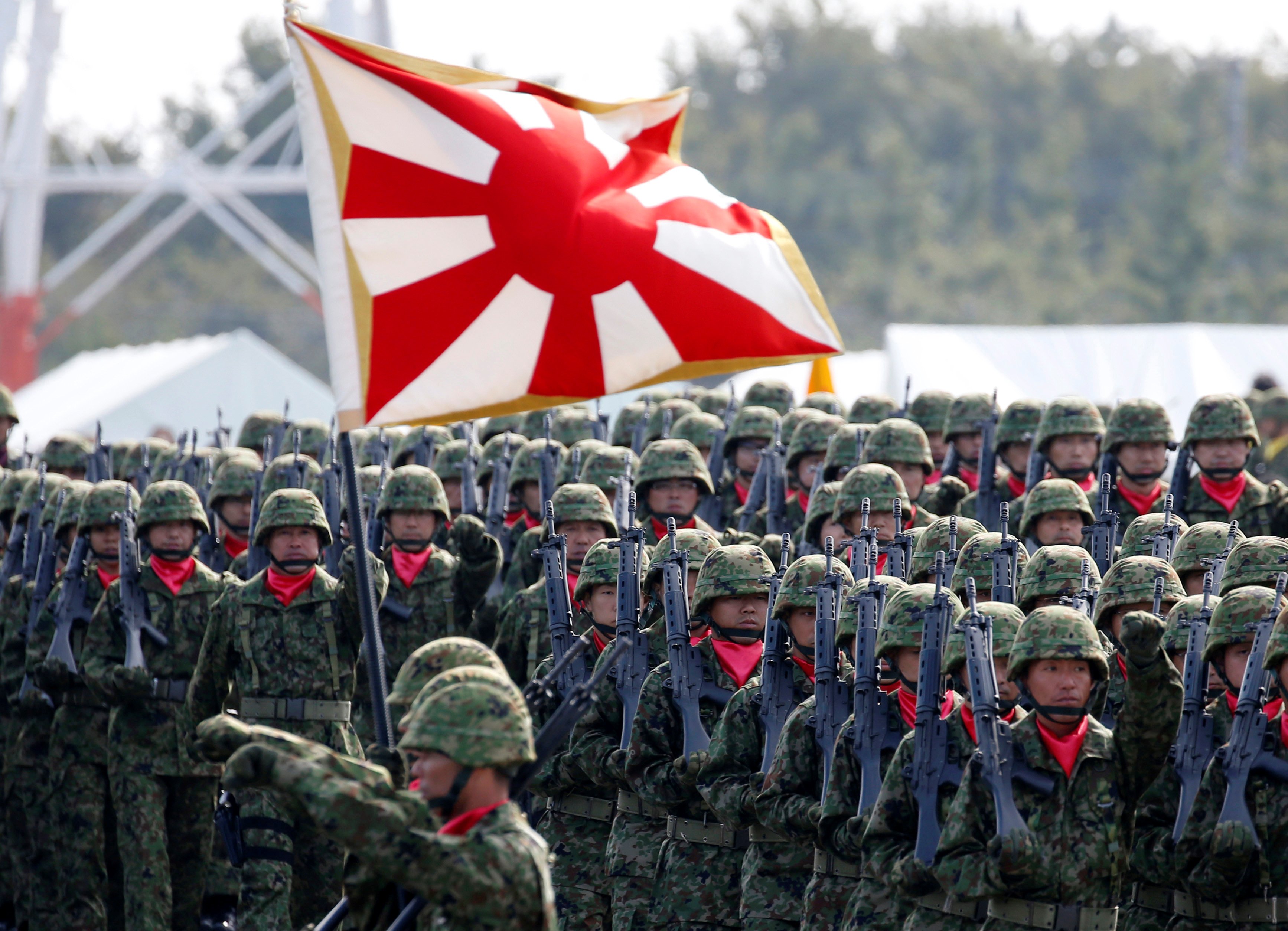26 Apr Japan’s military build up and its geopolitical impacts
THIS ARTICLE COVERS ‘DAILY CURRENT AFFAIRS’ AND THE TOPIC DETAILS “Japan’s military build up and its geopolitical impacts”. THIS TOPIC IS RELEVANT IN THE “International relations” SECTION OF GS2 IN THE UPSC CSE EXAM.

Why in the news?
The recent address by Japan’s Prime Minister Fumio Kishida to the United States Congress, alongside the outcomes of his summit with President Joe Biden, heralds the emergence of a more assertive Japan on the global stage. These events underscore a significant transformation underway in Japan and highlight its growing importance on the international scene.
Japan’s abandonment of its post-War pacifism marks a significant shift in its stance towards military power. This decision holds the potential to reshape not only the dynamics of Asia but also the global geopolitical landscape. Japan’s newfound determination and military strength align with India’s vision of fostering a multipolar Asia within a multipolar world.
Background
Following World War II, Japan, humbled by defeat, embraced a policy of pacifism. This involved refraining from significant military buildup, limiting defense spending, and abstaining from involvement in military conflicts globally. This commitment to pacifism stemmed from Japan’s desire to atone for its pre-war militarism and imperialism.
To compensate for its pacifist stance, Japan forged a robust bilateral military alliance with the United States. Under the protection of the US in Asia, Japan redirected its efforts toward economic recovery and emerged as a formidable commercial and technological force by the late 1960s. By the early 1970s, Japan had ascended to become the world’s second-largest economy, trailing only the United States.
Starting in the mid-2000s, Japan began advocating for a new security framework in Asia, notably through the concept of the Indo-Pacific, a pivotal geopolitical idea of the 21st century. This notion, emphasizing the strategic unity of the Indian and Pacific Oceans, was initially articulated by the late Prime Minister Shinzo Abe during his 2007 visit to India. Japan has since dedicated substantial diplomatic, political, and financial efforts to promote this concept, leading to its adoption by key regional players like Australia, Indonesia, India, and the United States.
In the current phase of transition, Japan is not only advancing strategic concepts but also bolstering its military capabilities and demonstrating the political resolve to actively reshape the regional security landscape. Prime Minister Kishida’s recent visit to Washington DC effectively symbolized the emergence of a new geopolitical Japan.
Reason for the change in policy
For years, the United States has urged Japan to play a more active role in ensuring security within Asia. However, Japan, content with its focus on commerce, had been hesitant to embrace this suggestion. In the 21st century, a combination of internal and external factors has prompted a significant reevaluation of Japan’s security posture.
Externally, several key factors have converged to catalyze Japan’s shift: the assertive military stance of China, particularly concerning territorial disputes with Japan; the strengthening military ties between Beijing and Moscow, along with their coordinated policies in Northeast Asia; the increasing military capabilities of North Korea; and concerns sparked by the Trump Administration regarding the potential withdrawal of US security assurances for Japan and other Asian allies. These elements collectively have reshaped Japan’s regional security landscape, compelling a reassessment of its strategic approach
Impact on Japan’s military buildup on Asian geopolitics
Japan’s military buildup carries significant implications for Asian geopolitics, catalyzing shifts in regional power dynamics and security arrangements:
- Balance of Power: Japan’s enhanced military capabilities introduce a new element to the balance of power in Asia. As Japan strengthens its defense forces, it potentially offsets the military dominance of other regional powers, influencing their strategic calculations and interactions.
- Regional Security: The buildup of Japan’s military capabilities contributes to the evolving security architecture in Asia. It may prompt neighboring countries to reassess their defense postures and alliances, potentially leading to adjustments in regional security arrangements.
- Deterrence and Stability: A militarily stronger Japan could serve as a deterrence against potential aggression or instability in the region. This may contribute to maintaining peace and stability by dissuading aggressive actions from adversaries and fostering a more predictable security environment.
- Alliance Dynamics: Japan’s military buildup could impact its alliances and partnerships in Asia. It may strengthen ties with like-minded countries sharing security concerns, while potentially causing apprehension or prompting responses from others who view Japan’s military expansion with suspicion.
- Territorial Disputes: Japan’s military capabilities may have implications for ongoing territorial disputes in the region, particularly in the East China Sea and the South China Sea. A stronger Japanese defense posture could influence the dynamics of these disputes and affect the strategies of other claimant states.
- Regional Influence: Japan’s increased military capacity could enhance its influence and leadership role in regional security initiatives and multilateral forums. It may seek to play a more proactive role in shaping security policies and responses to common challenges in collaboration with other Asian nations.
Overall, Japan’s military buildup adds a new dimension to the complex tapestry of Asian geopolitics, impacting regional dynamics and shaping the strategic landscape in ways that require careful observation and analysis by stakeholders both within and beyond the region.
Donload plutus ias current affairs eng med 26th April 2024
Hello friends, I am Ankit Kumar here at Plutus Ias to provide you with some really insightful content that will help you prepare for UPSC. Here is a brief introduction about me
I have written 2023 mains examination, UGC net JRF qualified and worked in several UPSC coachings as PSIR and current affairs mentor and faculty. Apart from this, I am also a student like you and a lifelong learner working in this profession, which I love.



No Comments